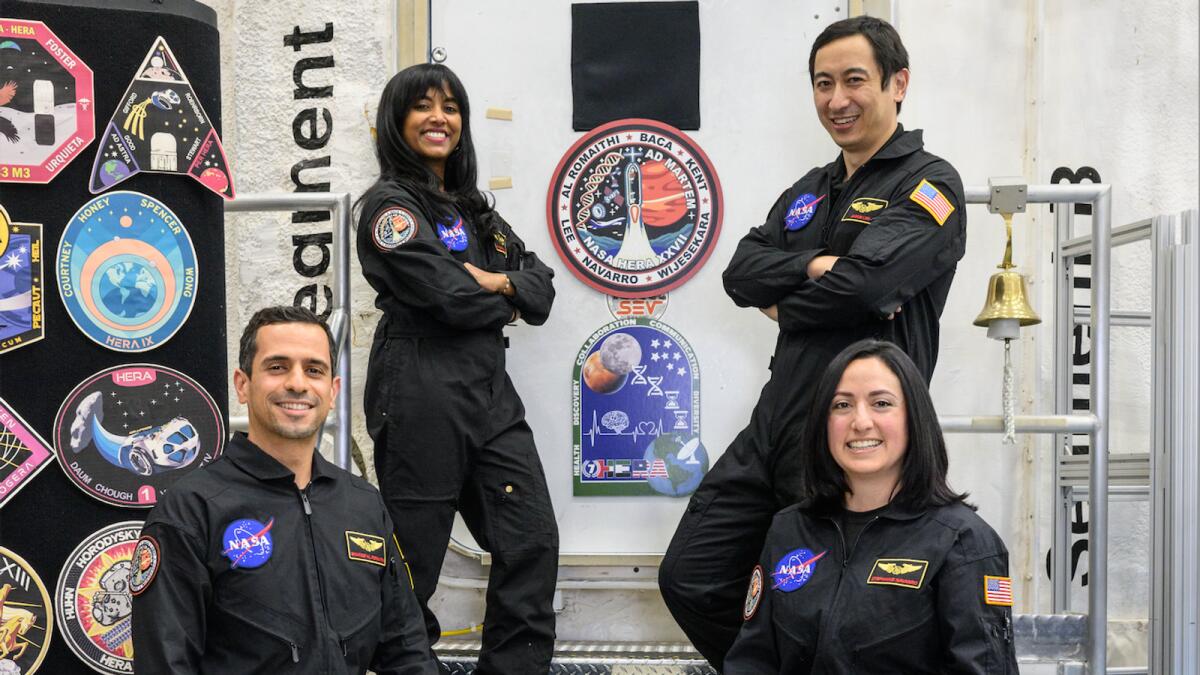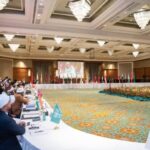The Mohammed Bin Rashid Space Centre (MBRSC) has announced the start of phase two of the second analog study under the UAE Analog Programme. Emirati crew member Shareef AlRomaithi has entered the Human Exploration Research Analog (HERA) habitat at Nasa’s Johnson Space Center in Houston, USA, along with primary crew members Jason Lee, Stephanie Navarro, and Piyumi Wijesekara. The 45-day mission within the HERA facility aims to study how crew members adapt to isolation, confinement, and remote conditions similar to those on long-duration space missions.
During their simulated journey in HERA, the team will engage in scientific research and operational tasks, including a virtual reality “walk” on Mars’s surface and managing communication delays with the Mission Control Center as they simulate nearing Mars. The crew is scheduled to leave the facility on June 24. This mission is a part of the UAE Analog Programme, which aims to prepare cadres for the challenges of deep space exploration and position the UAE as a leader in space technology internationally.
Salem Humaid AlMarri, Director-General of MBRSC, highlighted the importance of the UAE Analog Programme in integrating advanced scientific research with strategic objectives to establish the UAE as a key player in the international space community. The program involves comprehensive analog studies to understand the physiological, behavioral, and psychological responses of crew members under conditions expected on future lunar and Martian exploration missions. Scientific experiments for the analog study are provided by institutions like the United Arab Emirates University, Mohammed Bin Rashid University of Medicine and Health Sciences, and American University of Sharjah.
The collaboration with Nasa in conducting Earth-based simulations helps prepare UAE cadres for the challenges of deep space exploration and inspires future generations to explore the horizons of human potential. The UAE Analog Programme plays a pivotal role in advancing research initiatives and positioning the UAE and the broader Arab world as influential players in the field of space technology. Through partnerships and innovative studies, the UAE is at the forefront of developing cutting-edge space technologies and contributing to groundbreaking research in space exploration.
By participating in analog studies and conducting experiments in simulated space conditions, the UAE is paving the way for advancements in space technology and preparing its cadres for future missions to the Moon and Mars. Through collaborative efforts with international partners and institutions, the UAE Analog Programme is creating opportunities for scientific research and exploration that will benefit humanity as a whole. The commitment to innovation and excellence in space technology positions the UAE as a leading contributor to the global space exploration community.































